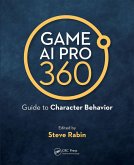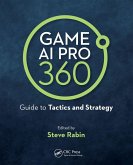AI in and for Africa: A Humanistic Perspective explores the convoluted intersection of artificial intelligence (AI) with Africa's unique socio-economic realities. This book is the first of its kind to provide a comprehensive overview of how AI is currently being deployed on the African continent.
Given the existence of significant disparities in Africa related to gender, race, labour, and power, the book argues that the continent requires different AI solutions to its problems, ones that are not founded on technological determinism or exclusively on the adoption of Eurocentric or Western-centric worldviews. It embraces a decolonial approach to exploring and addressing issues such as AI's diversity crisis, the absence of ethical policies around AI that are tailor-made for Africa, the ever-widening digital divide, and the ongoing practice of dismissing African knowledge systems in the contexts of AI research and education. Although the book suggests a number of humanistic strategies with the goal of ensuring that Africa does not appropriate AI in a manner that is skewed in favour of a privileged few, it does not support the notion that the continent should simply opt for a "one-size-fits-all" solution either. Rather, in light of Africa's rich diversity, the book embraces the need for plurality within different regions' AI ecosystems. The book advocates that Africa-inclusive AI policies incorporate a relational ethics of care which explicitly addresses how Africa's unique landscape is entwined in an AI ecosystem. The book also works to provide actionable AI tenets that can be incorporated into policy documents that suit Africa's needs.
This book will be of great interest to researchers, students, and readers who wish to critically appraise the different facets of AI in the context of Africa, across many areas that run the gamut from education, gender studies, and linguistics to agriculture, data science, and economics. This book is of special appeal to scholars in disciplines including anthropology, computer science, philosophy, and sociology, to name a few.
Given the existence of significant disparities in Africa related to gender, race, labour, and power, the book argues that the continent requires different AI solutions to its problems, ones that are not founded on technological determinism or exclusively on the adoption of Eurocentric or Western-centric worldviews. It embraces a decolonial approach to exploring and addressing issues such as AI's diversity crisis, the absence of ethical policies around AI that are tailor-made for Africa, the ever-widening digital divide, and the ongoing practice of dismissing African knowledge systems in the contexts of AI research and education. Although the book suggests a number of humanistic strategies with the goal of ensuring that Africa does not appropriate AI in a manner that is skewed in favour of a privileged few, it does not support the notion that the continent should simply opt for a "one-size-fits-all" solution either. Rather, in light of Africa's rich diversity, the book embraces the need for plurality within different regions' AI ecosystems. The book advocates that Africa-inclusive AI policies incorporate a relational ethics of care which explicitly addresses how Africa's unique landscape is entwined in an AI ecosystem. The book also works to provide actionable AI tenets that can be incorporated into policy documents that suit Africa's needs.
This book will be of great interest to researchers, students, and readers who wish to critically appraise the different facets of AI in the context of Africa, across many areas that run the gamut from education, gender studies, and linguistics to agriculture, data science, and economics. This book is of special appeal to scholars in disciplines including anthropology, computer science, philosophy, and sociology, to name a few.
Dieser Download kann aus rechtlichen Gründen nur mit Rechnungsadresse in A, B, BG, CY, CZ, D, DK, EW, E, FIN, F, GR, HR, H, IRL, I, LT, L, LR, M, NL, PL, P, R, S, SLO, SK ausgeliefert werden.









